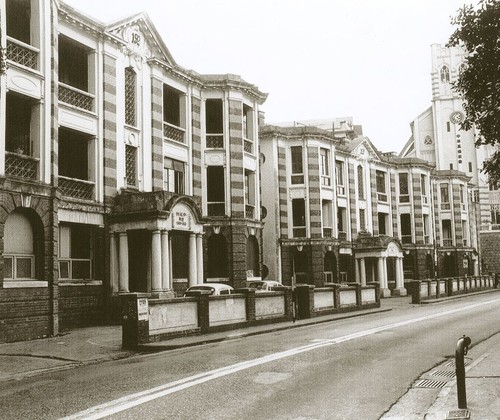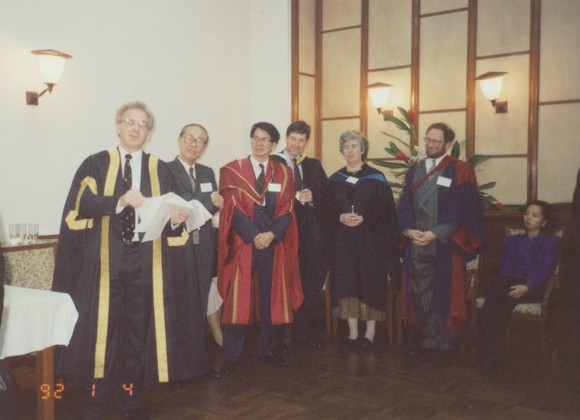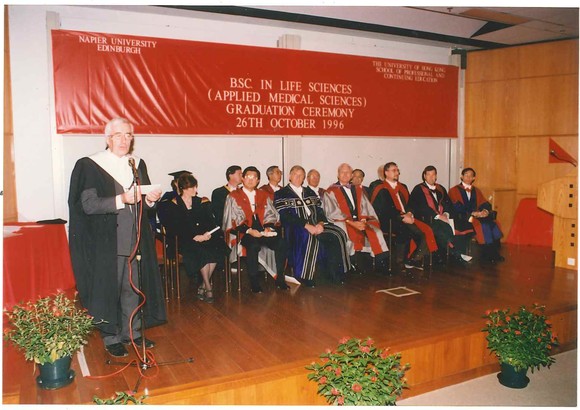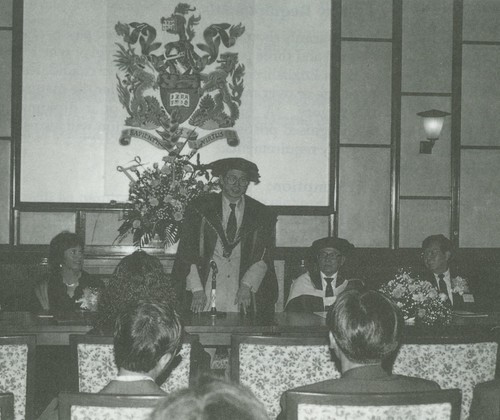Life at HKU SPACE Memorabilia
Blending with the World's Resources
International Partnerships
From the very early days in the mid-1950s, the DEMS was influenced by overseas practice, but many subject disciplines including Law were not available locally. So preparatory courses for University of London External LL.B. degrees were offered, as were preparatory courses for UK professional accountancy exams. In the mid-1960s, a formal agreement was entered into with the University of London to offer the LL.B. on a fulltime basis. The University subsequently formed the Department of Law in 1969. Following the success of its first partnership, the DEMS continued its efforts to create and extend further partnerships to provide more degree places, particularly through part-time study and to develop programmes in areas not otherwise offered in Hong Kong.
Full-time Courses
The 1990s saw overseas partnerships extend to parttime degrees and there are now some 33 overseas collaborations covering 142 academic programmes. From 2004, students could enrol full-time, and we now have 26 degrees with 10 international partners for 2,000 full-time students in our International College.
Currently the School has 23 non-local partnership programmes on the Qualifications Register with five overseas partners which are quality assured and recognised under the Hong Kong Qualification Framework.
The Benefits of Internationalisation
Internationalisation gives more opportunity for students to take relevant and well-designed programmes from reputable overseas institutions. It also brings staff development opportunities and the chance to develop relevant local academic content in support of the overseas programmes.
Students benefit from this blend of overseas and local material. And Hong Kong, as an open society, is able to keep abreast of the best in overseas courses.
Photo Courtesy of HKU Communications and Public Affairs Office













